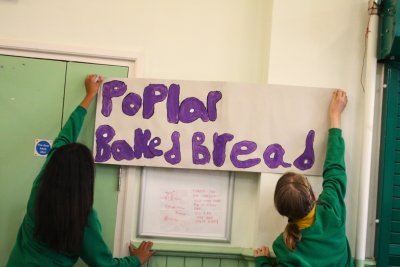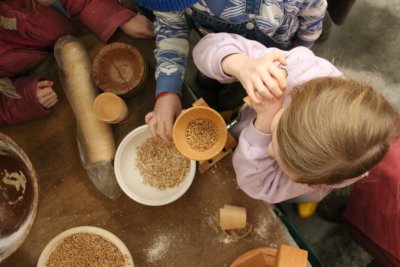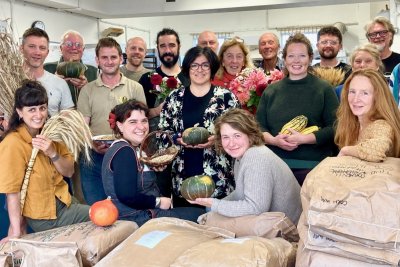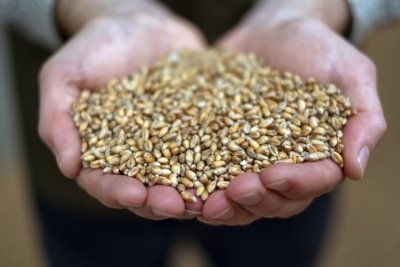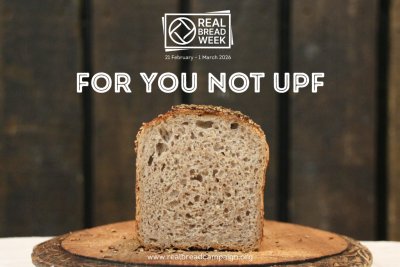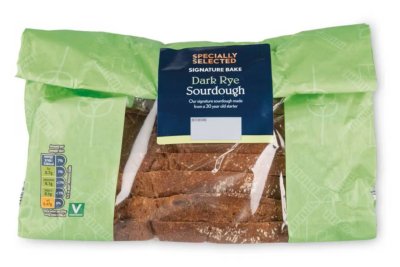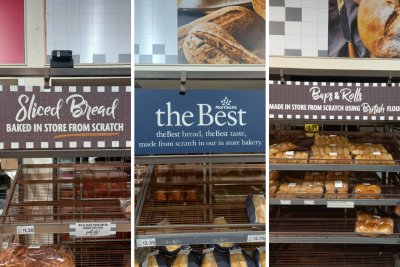 Watch out, there's sourfaux about!. Credit: Chris Young / www.realbreadcampaign.org / Canva CC-BY-SA-4.0
Watch out, there's sourfaux about!. Credit: Chris Young / www.realbreadcampaign.org / Canva CC-BY-SA-4.0
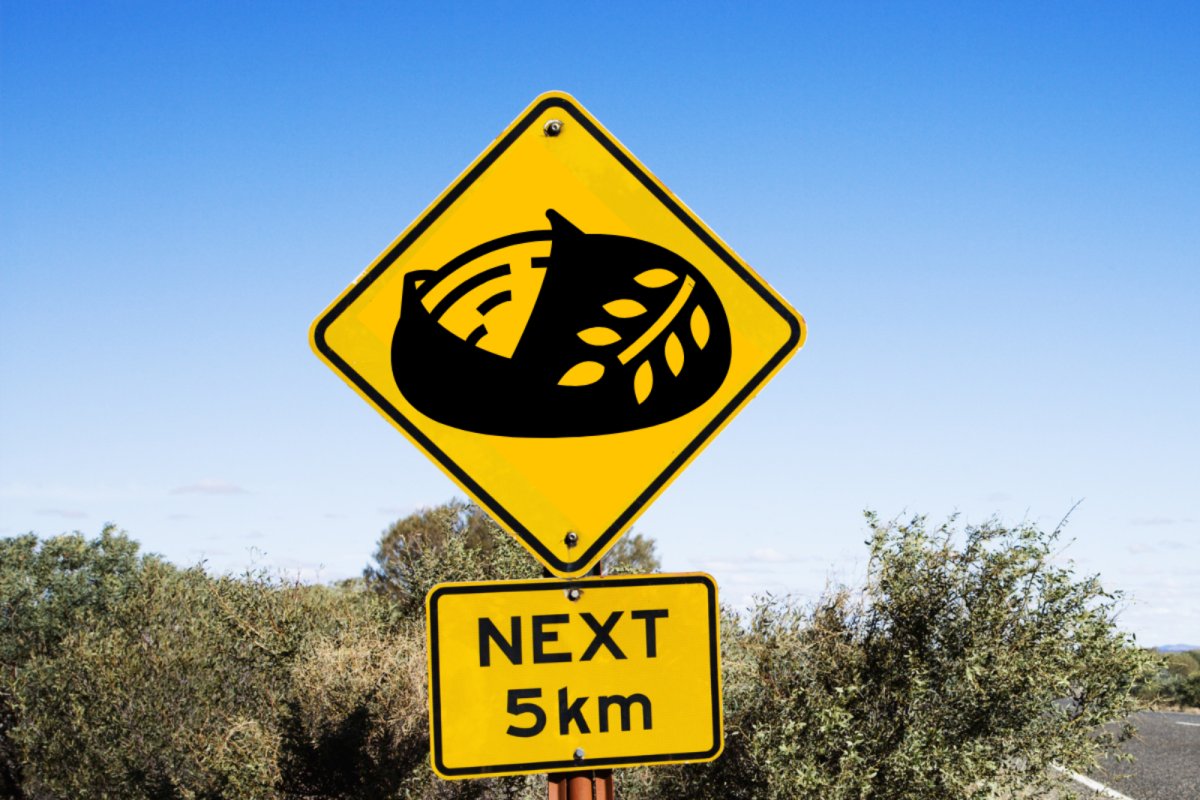
Sourfaux down under
Oz researchers find most supermarket ‘sourdough’ made with additives and commercial yeast and question marketing claims.
Results of a study of ‘bread’ products sold by five chains in Australia, conducted by researchers from UNSW in Sydney, have been published in the International Journal of Food Sciences and Nutrition.
The researchers reported:
- 50% increase in products labelled as sourdough.
- 83% of products labelled as sourdough were in fact sourfaux.
- 89% increase in on-pack fermentation claims.
- Supermarket loaves marketed as ‘sourdough’ weren’t necessarily more nutritious.
Real Bread Campaign coordinator Chris Young said: "Evidently the UK isn't the only place that needs an Honest Crust Act to protect shoppers from misleading marketing."
The research
The slow rise of sourdough: a nutrition audit of the bread category highlights whole grain was conducted and written by Jaimee Hughes and Associate Professor Sara Grafenauer. The they looked at all products in the ‘bread’ category sold by Sydney branches of four supermarket chains (Coles, Woolworths, Aldi and IGA, which collectively account for around 80% of the grocery market) as well as a franchised outlet of the 700-strong Baker’s Delight chain. These totalled 669 products in October 2019 and 800 in October 2021. The information the researchers collected included details from product packaging, including the ingredient lists, nutritional information, and marketing claims.
Sourfaux marketing
While the total number of products in the ‘bread’ category rose by 20% between 2019 and 2021, those named or marketed using the word ‘sourdough’ increased by 50%.
This increase is evidence of growing popularity of sourdough, which the researchers said partly can be attributed to “perceptions about it being healthier, due to a long fermentation process and a small number of additive ingredients.”
Of the 108 products marketed as sourdough, however, 72 (83%) were in fact made using baker’s yeast and/or one or more additives – what the Real Bread Campaign calls sourfaux, as the study notes.
A/Prof. Grafenauer said: “There are a lot of claims out there in the marketplace that could be distracting for consumers. You may think that you’ve got a beautiful sourdough bread, but it’s actually got a whole range of other ingredients added to it.”
Fermentation
A/Prof. Grafenauer told the Real Bread Campaign: “Our main issue was the potentially misleading claims about fermentation time.” She and Hughes found that 26% of ‘sourdough’ products from 2021 had on-pack claims about the sourdough fermentation process, an 86% increase from 2019.
The claimed fermentation times ranged from 8 to 72 hours. The researchers noted, however, that previous research into potential benefits of sourdough fermentation found that changes (small reductions in FODMAP levels, for example) occurred after much shorter times.
Real Bread Campaign co-ordinator Chris Young said: “This bigger numbers game reminds me of vitamin supplements that boast of having 300% of your RDI of vitamin C, or whatever. People might well think ‘ooh, it’s got more so I’ll buy this one as it must be better for me', when the reality is that after a certain point you get no additional benefit for taking more.”
With regard to marketing of sourfaux, the study notes: “The compelling fermentation claims may influence consumers to purchase products without realising this lack of authenticity.” The UNSW Newsroom quoted A/Prof. Grafenauer as saying: ““People might be taken in by claims about long fermentation time thinking: this is real sourdough, but what they actually need to do is look at the list of ingredients.”
The researchers did not test the validity of the claims. What is unclear, therefore, is how much of the dough in each product underwent fermentation for the stated length of time, and what sort of fermentation it was. Young suggested: “A 72 hour sourdough claim might be made on the basis that a very small amount of dough was fermented for this period using baker’s yeast, then used with a dash of inactive dried sourdough starter, a load more commercial yeast and the usual litany of additives to bang out an otherwise standard factory loaf by the ‘no-time’ Chorleywood Process. This would exclude the all-important lactic acid bacterial fermentation process, upon which any potential sourdough benefits rely.”
Health and nutrition
The researchers assessed the nutritional profiles of the products, considering them to be more nutritious if they contained higher levels of protein and dietary fibre, and lower levels of sodium.
Unsurprisingly, they found that the key factor in determining levels of these were the ingredients, rather than the process, used. They recorded better scores for breads made from wholegrain flour (which, unlike the UK, is defined in food regulations for Australia and New Zealand) than white.
A/Prof. Grafenauer’s advice for Australian supermarket shoppers seeking? “Just don’t be taken in by the sourdough health halo.”
Other notes
What this study was not designed to do was evaluate micronutrient (vitamin and mineral) levels, their bioavailability, or any other potential health and nutritional benefits of sourdough fermentation. Echoing the long-standing assertion by other researchers and the Real Bread Campaign that more research is needed, the report concludes: “Further research considering both the industrial and artisan environment should aim to more precisely determine optimal bacterial species and yeasts, with a view to identifying health benefits.”
The disclosure statement for the study noted that the research received no external funding. Data was provided without charge by the Grains & Legumes Nutrition Council, but that charity had no role in the design, execution, interpretation and writing of the study or in the decision to publish the results. Sara Grafenauer is a member of the governing board for the Whole Grain Initiative and a board member of Oat Australia.
See also
Real Bread Campaign reaction to Australian 'freshly baked' ruling
Real Bread Campaign: Finding and sharing ways to make bread better for us, our communities and planet.
Sustain
The Green House
244-254 Cambridge Heath Road
London E2 9DA
020 3559 6777
sustain@sustainweb.org
Sustain advocates food and agriculture policies and practices that enhance the health and welfare of people and animals, improve the working and living environment, promote equity and enrich society and culture.
© Sustain 2026
Registered charity (no. 1018643)
Data privacy & cookies
Icons by Icons8
